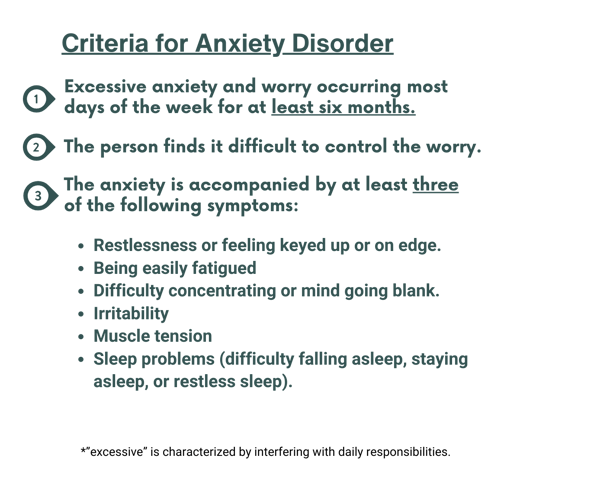”One of the major sources of stress, anxiety, and unhappiness comes from feeling as if your life is out of control."
- David Cottrell
Anxiety
Anxiety is a common human emotion characterized by feelings of unease, worry, and apprehension. It's normal to experience occasional anxiety, but excessive and persistent feelings of anxiety can interfere with daily life and well-being.
When feeling anxious, it is common to experience a racing heart, shortness of breath, trembling, sweaty palms, feel dizzy or lightheaded, and have an upset stomach or nausea. Muscle tension, headaches, and teeth grinding are also commonly reported physical symptoms of anxiety. In severe cases, anxiety may result in panic attacks, characterized by intense fear and physical symptoms like rapid heart rate and shortness of breath.
Manageable anxiety should be distinguished from unmanageable anxiety. When anxiety becomes unmanageable it then moves toward becoming a mental disorder or illness. For instance, everyone worries about life, stress, health, finances, children, and so on. This is not anxiety disorder. People suffering with anxiety disorder worry excessively, so much that it typically interferes with everyday life and daily tasks. Another distinguishing factor is the length of these worries. They don’t go away over time and begin to affect our everyday life and daily responsibilities, such as spending time with family members and going to work.
There are many types of anxiety disorders, such as separation anxiety, social anxiety, and specific phobias. For example, one common diagnosis of anxiety disorder is generalized anxiety disorder. The most prominent feature is excessive anxiety and worry about a number of events or activities.




